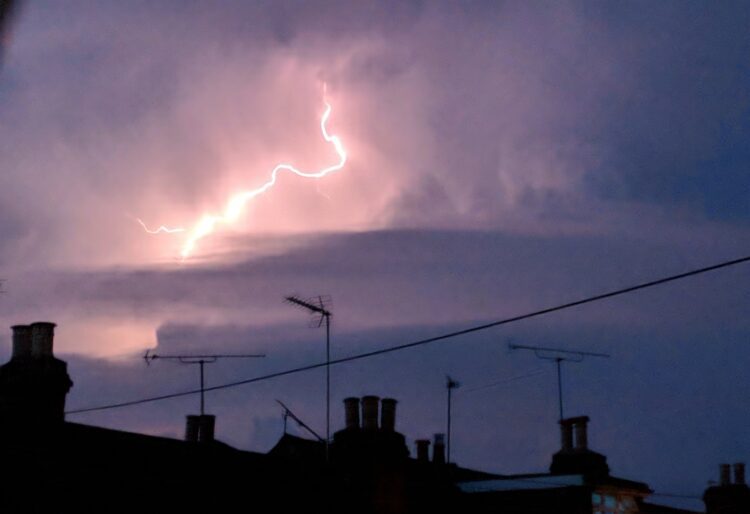NHS SERVICES in the south east are urging residents with asthma to use their inhalers during and around thunderstorms.
Those with preventer inhalers are being urged to use them to reduce their increased risk of the condition worsening due to stormy weather.
Thunderstorms can lead to an increase in pollen being carried on strong winds, especially during the summer, and broken down into finer particles.
This means they reach deeper into people’s lungs and cause asthma attacks.
Around 116,000 people in Berkshire West, Buckinghamshire, and Oxfordshire have asthma, which means changes in weather, pollen counts, and air pollution can trigger breathlessness, wheezing, and coughing.
People with hay fever are also at risk.
The NHS has cited data from the UK Health Security Agency which shows that thunderstorms have coincided with spikes in hospital admissions with asthma across the country.
June last year was the the month which saw the highest numbers of people being admitted to hospital.
Those with asthma are advised to use their preventer inhalers regularly if a storm is expected in the next few days.
They are also advised to stay indoors during and around a storm where possible with closed windows.
They can also wear masks while outside to reduce pollen exposure and keep up with the weather forecasts for high pollen alerts.
Dr Abid Irfan, a local GP and director of primary care at Buckinghamshire, Oxfordshire and Berkshire West Integrated Care Board (BOB ICB), said: “Thunderstorms can trigger asthma attacks. If you have asthma use your preventer inhaler regularly in the days before a forecast thunderstorm and keep your reliever inhaler with you before and during the storm.
“In general, people living with both asthma and hay fever are advised to take antihistamines and steroid nasal sprays as needed to help control their pollen allergy.
“Last year, summer thunderstorms led to an increase in people being admitted to hospital for their asthma across the ICB – people can help us buck this trend by taking the necessary precautions and advice to treat their asthma especially around thunderstorms.
“This will also take pressure off our local hospitals.”
Professor Tim Hinks, associate professor and honorary consultant at Oxford University Hospitals NHS Trust, said: “We don’t yet know why only some thunderstorms trigger asthma attacks, but every few years, usually in June, a severe event happens in UK leading to hundreds of people with asthma seeking emergency help.
“Severe and sometimes fatal attacks can happen even in people with ‘mild’ asthma.
“The most important way for people with asthma to keep safe is to use your preventer regularly and keep your reliever with you, particularly if you’re having symptoms of hay fever or asthma during pollen season. ”















































